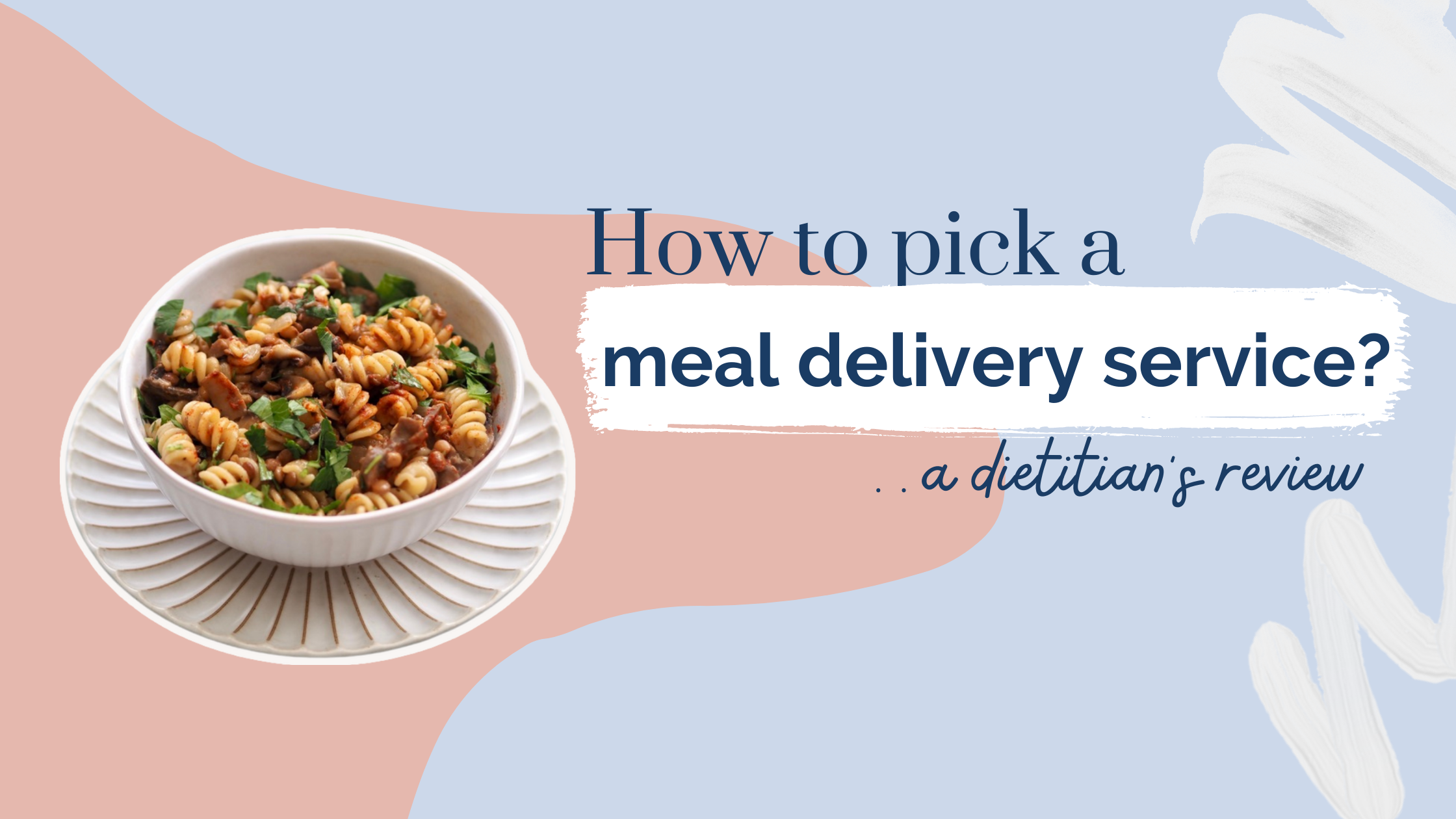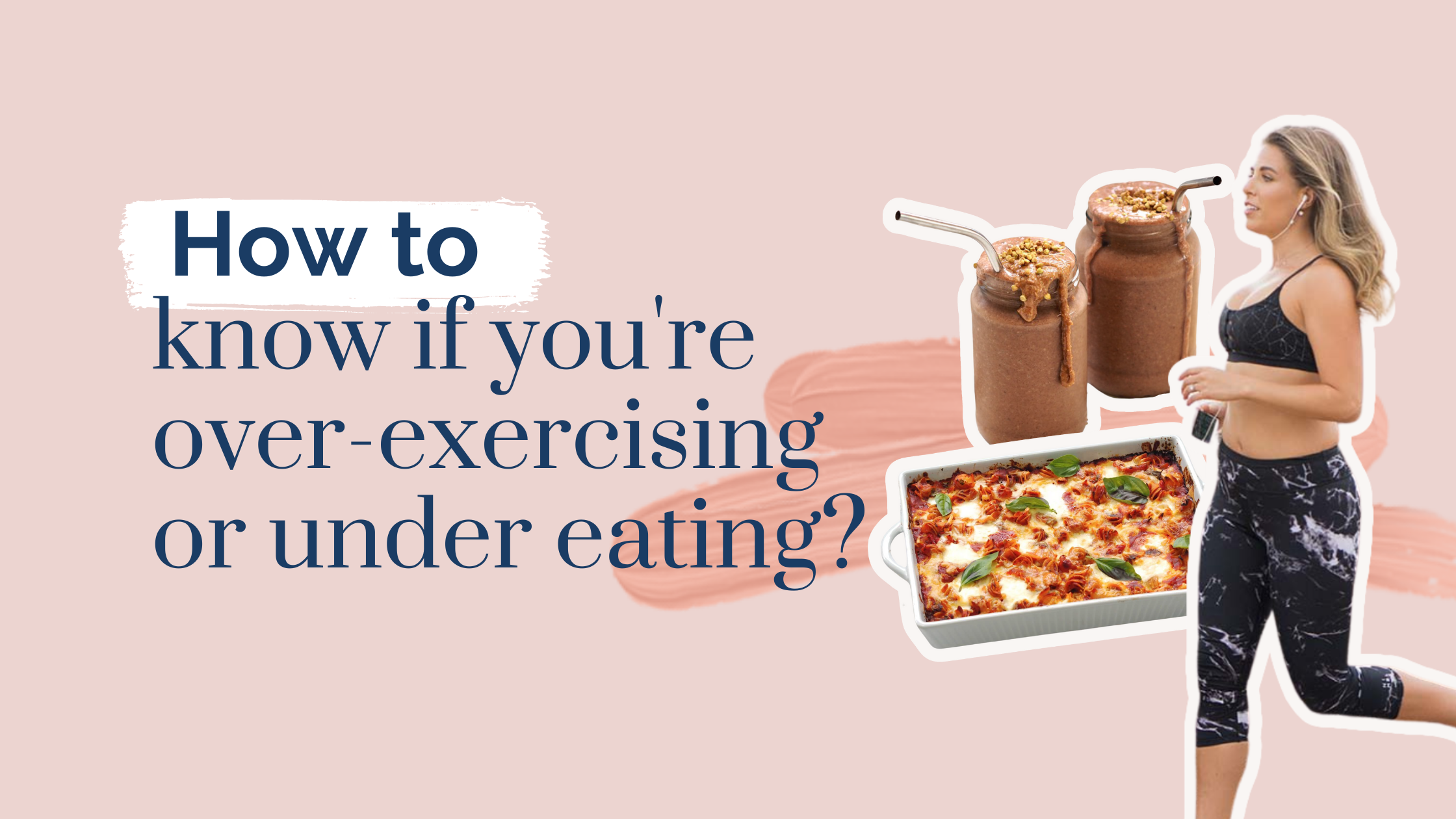How to Teach Kids a Healthy Relationship With Food [10 Things to Avoid]
Chances are you were raised by parents who had never heard of the phrase ‘healthy relationship with food’.
While your parents may have said or done things accidentally that impacted your relationship with food (making it harder to enjoy food without guilt, stop eating when you feel full and love your body), you can help raise your children to have a healthy relationship with food.
There are a few things to keep in mind if you want your child to learn how to eat intuitively, live healthily and love their body.

To raise children with a healthy relationship with food, here are 10 things to avoid:
1. Don’t refer to food as ‘good’ or ‘bad’
Sometimes, it’s perfectly healthy to have a piece of a cake at a birthday party. Therefore, birthday cake is not ‘bad’, it’s just something we eat sometimes, not every day. That is balance!
Labelling food as ‘bad’ demonises it. If children think a food is ‘bad’, they may end up hiding food from you, eating more when no one is looking and feel guilty and bad when they do it eat (and this can all lead to emotional eating and yo-yo dieting later on in life).
Try instead: Ditch words like ‘good’, ‘bad’, ‘treat’ ‘crap’ or ‘junk food’. Refer to ‘sometimes’ or ‘everyday’ food. Don’t underestimate how important this is!
A 2011 study by psychologist Alia Crum shows really well how our thoughts around food impact our stomach and how we feel after eating.
Listen to it here: How diet food tricks you into eating more: The Milkshake Experiment

2. Don’t say the ‘f’ word
Children are sponges. They listen to everything you say. The way you talk about food and bodies really matters…
Never, ever, use the ‘f’ word. And the ‘f’ word is ‘fat’.
Resist the temptation with all your might to use the word ‘fat’ or ‘fattening’, especially when talking about your body, their body or someone they know.
3. Don’t bitch about your body or other people’s bodies
See someone on the TV or on the street who you think should lose weight? There’s no need to make a comment.
Feeling uncomfortable in your body? Don’t call yourself fat or tell your child how much you hate your own body. This is for your benefit and theirs.
This is a big one that’s often overlooked.
When you make comments like this, you’re NOT teaching your children how to eat healthily. You’re teaching them to hate their bodies and teaching them that they must worry about their weight.
Teach your children how to eat healthily. But don’t teach them how to hate their body. There’s a big difference.

4. Don’t tell them to “finish everything on your plate”
When you do this, you’re teaching your child to ignore their hunger. You’re teaching them that they should only stop eating when the food is finished.
Truth is, you want them to stop eating when they feel full – regardless whether the food is finished or not. Being told to ‘finish everything on your plate’ often encourages overeating and eventually, emotional eating when they get older.
Obviously, you don’t want to waste food. Try this… At meal times, ask them “how hungry are you?” You can get them to pick a number out of 10 to help work it out. Explain that hunger is your bodies way of telling you it’s time to get more fuel.
You can also let them plate up their own food. Keep the food they don’t eat for when they get hungry again.
5. Don’t say, “You are so picky”
If you tell your child they are a picky or fussy eater, they will believe you. If you tell your children they are fantastic or if you tell them they are fat, whether it’s true or not – they will believe you.
Don’t define your child as a fussy eater.
They will start to identify with it and believe it’s true… Most likely, this is a normal developmental stage. Don’t draw attention to fussy eating. Try to make mealtimes enjoyable and stress-free, creating a safe environment (and the right mindset) for them to try new foods.
6. Don’t congratulate them for eating more than usual
Rewarding children for eating more than normal reinforces that more food is better. The truth is children should be eating when they feel hungry. This may be more or less depending on their hunger that day.
7. Don’t diet
If a parent is always dieting, cutting out whole food groups, avoiding ‘fattening foods’ or having special food at dinner time, children grow up thinking that is healthy and normal.
Don’t restrict food or diet.
Try to lead by example. (I’ll help you learn how to stop dieting for good and get a healthy relationship with food via my Keep It Real Program…. Even if you’ve tried everything before).

8. Don’t eat in front of the TV
When you eat in front of the TV, you condition your brain to get hungry every time you turn on your screen. Eating while distracted by a TV also makes kids more likely to eat mindlessly so they are more likely to overeat.
I know this is such a hard one! And yes occasionally, you will let the kids watch TV and eat. But if you can, most of the time, try eating at the table together.
9. Don’t make kids set the dinner table
This may be controversial but wait for me to explain. Often, the only involvement children have with meal prep is setting the table. And it’s the most boring, tedious and unfun activity. Am I right?!
Children are capable of helping in the kitchen – and they enjoy it.
If you can, get your children involved in the kitchen. Don’t refer to it as a ‘chore’, even if that’s what it is. It should be fun. They can combine ingredients, chop food (depending on age) and shake the salad dressing, pour it and toss.
10. Don’t beat yourself up
You’re never going to get it right all the time. You’re human. Parents are not perfect.
Apologise or explain when you’re wrong, correct yourself if you say something you shouldn’t have and remind your children (often) that you will love them no matter what they weigh. Children to need to hear they are good enough just the way they are.
You can pass down a healthy relationship with food to your children… even if you’ve been dieting for years, struggle with your weight and obsess about food. When you have a healthy relationship with food, your children will learn by example.
If you’ve tried everything but nothing else has worked, check out my Keep It Real Program. It’s been called ‘life-changing’ by many.
Liked this blog post? Please share it with friends.
And don’t forget to check out my podcast No Wellness Wankery! Here are a few episodes you’ll like:
▶️ Accidentally gave your child body image issues? Listen to this.
▶️ Are you looking for healthy snack ideas?
▶️ Why can’t I stop eating peanut butter, cereal or bread?
▶️ Real Story: How Jenna changed her life with intuitive eating
▶️ Does your mum criticise your body? Listen to this.






